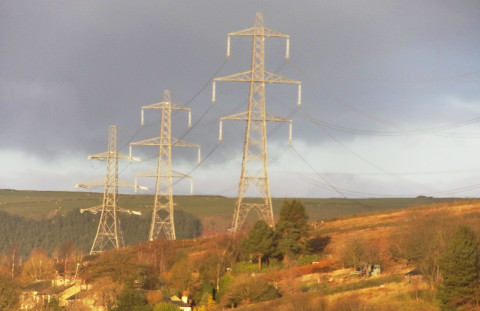
Morning sun

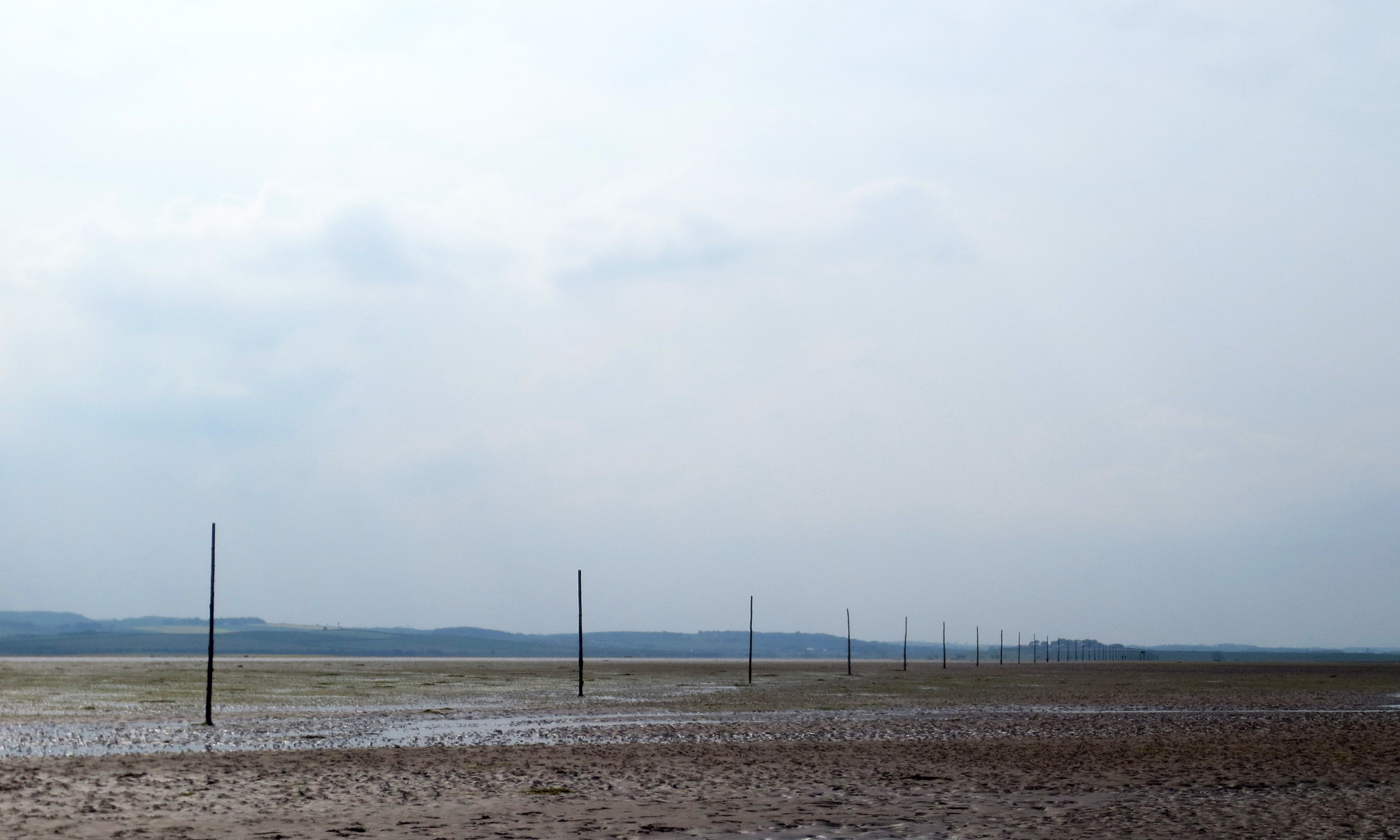
the adventures of retirement

Next Sunday, another story of a prophet’s call, this time Isaiah. More grandeur this time – and what’s the second half all about? It sounds like sarcasm. Maybe that’s an introduction to the (at times) thanklessness of the prophet’s task.
No walks this morning – getting ready for church duties. But plenty of eating nevertheless.
“Today this scripture has been fulfilled in your hearing.” So says Jesus in the last Lectionary Reading for tomorrow.
“Today” is good news for the poor, freedom for the oppressed; or tomorrow, or Thursday week, or ” in due course”, or “when I get around to it”?
God, people in pain or oppression or poverty are important
and their needs are urgent.
God save me from procrastination.
May I let Christ show me the way now.
https://lectionary.library.vanderbilt.edu/texts.php?id=110
Living God, be our rock in the struggles ahead;
give us strength when we have love,
give us love when we have strength.
In our time, may there be good news
for all who are poor.
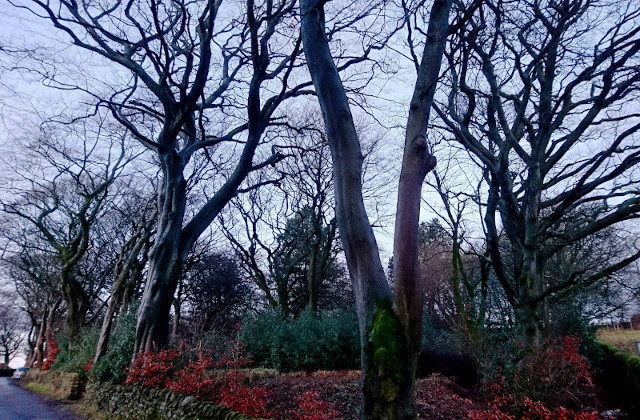
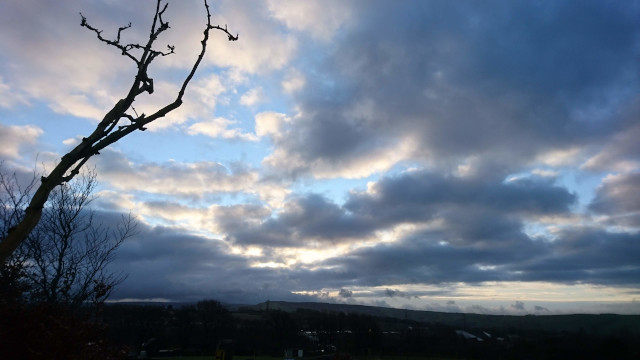
When Paul writes about love in 1 Corinthians 13 (from Sunday’s Lectionary), he is writing for the Christian community. But it is clear to me from elsewhere in the Bible (for instance the hard-won openness of the Christian community, and some of the writings of John about Jesus) that love is a much wider principle and central to the nature of God. But that is not the way the world works just now: it seems to me that we live in a time when hatred has proved advantageous to the careers of many people, especially the hatred of foreigners – no doubt it was ever thus.
Can love be tough enough to withstand the power of hatred – on social media, in political discourse, in pubs, on the roads? Can love reach further than family (where it may sometimes be no more than a word to mask abuse)? Can real love apply to the big world? Can the children of love – like passion for justice, and prayer – have an impact?
Maybe love can influence those tiny molecules of power given to us ordinary people; our purchasing decisions…. or our parts in every conversation in person or online.
It could be time to enter the culture war on the side of love (for everyone BTW).
It’s concerning to hear reports of antisemitic hate crimes at any time, but more so on Holocaust Memorial Day, a sombre reminder of what this can lead to.
The created universe is quite amazing even if you don’t look at the stars (an option which has been unavailable the last few days!). This is the underside of a tree fungus…

In Sunday’s Lectionary, the Psalmist describes God as a rock, a fortress, a refuge. Maybe we can take time to think when we have experienced God in this way. I have to say there are times when I wonder what God is doing – but underlying these experiences there is still the belief that there is something deeply reliable about God.
God of love, we pray for
people who need refuge right now,
for women who need to escape
from violent and abusive men,
for people fleeing from brutal regimes
or deadly poverty,
for people who have war on their doorstep:
living God, may they truly find
the refuge they need.
May they have a place to breathe again
and to live.
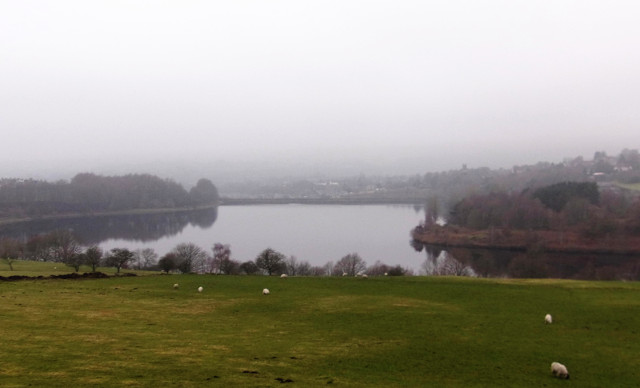
The quiet weather continues. Slowly, almost imperceptibly, the Trail gets less muddy.
Next Sunday’s Lectionary includes Paul’s famous chapter about love. It might be hard, it might be counter-cultural, but it seems to me worthwhile to heed what’s written in 1 Corinthians 13:6, and rejoice in truth.
In next Sunday’s Lectionary, the Jeremiah reading is about the calling of a prophet, a moment, a beginning. The Luke reading is about a moment at the beginning of Jesus’s ministry, and the violent opposition he meets – the shadow of his forthcoming death is already beginning to fall on the story. And in 1 Corinthians, Paul writes about the eternal significance of love.
Meanwhile, in the news, we hear about moments in the near future which may have a profound effect on the future of the world for a long time. No love there, I fear.
The turn of the year is a repeated moment. The rhythm of flowering, seeding and growth overlaps this human-made marker. This teasel (I guess that’s what it is) might be said to belong to last year … or next?…

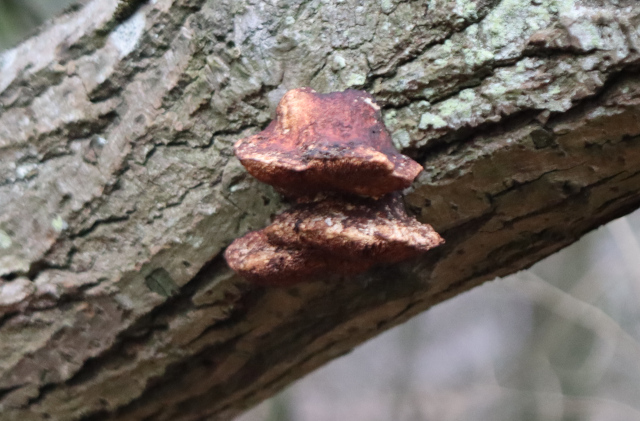
In tomorrow’s lectionary, Paul writing to the Christian community in Corinth, elaborates on his image of ‘the body of Christ’ for the Christian community. Every part of the body/community has a different and important role to play – there’s no need for jealousy or talent envy. OK, so I know it’s not always easy to put into practice.
When we see fungi, we normally see only the spore-carrying bodies, the outer growths that launch the spores which will produce new generations of the fungus. But most of a fungus is unseen – it’s the mycelium, the network of essential threads which grows inside the rotting tree or under the leaf litter or in the ground. The visible fruiting bodies may be dramatic, pretty, ugly, whatever. But they are not the whole story – that unseen, unappreciated network is every bit as important. You are the fungus of Christ.